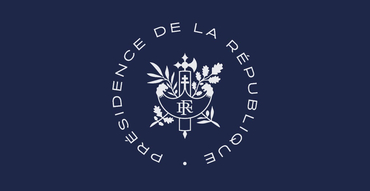At the occasion of French President Emmanuel Macron’s visit in Port-Moresby on the 28th of July 2023, France and Papua New Guinea committed to work hand in hand towards the formulation of a country package for Forest, Nature and Climate for Papua New Guinea.
Papua New Guinea hosts some of the most critical reserves of carbon and biodiversity in the world. The country hosts to over 7% of world biodiversity and is the land of the third largest primary rainforest in the world, making Papua New Guinea a net carbon negative country. On this basis, Papua New Guinea is determined to establish a multi-year program to protect these vital reserves, in the interest of the country, its people, and the planet.
This effort must be matched by a financial commitment and economic partnership with the international community. In this spirit, by COP28, France and Papua New Guinea, in strong partnership with the European Union in a team Europe approach, UN-agencies, Wildlife Conservation Society, Conservation International, and the Bezos Earth Fund, will work toward formulating a country partnership for Forest, Nature and Climate, associating all partners willing to join.
This partnership will be based on the following key objectives:
- Expand and support the network of protected areas and other effective area-based conservation measures the country, in order to assist Papua New Guinea in its commitment to reach 30% of land, inland water areas, and sea protection by 2030, in alignment with the Kunming-Montreal Global Biodiversity Framework (GBF). This will be conducted through the assessment and effective management of existing protected/conserved areas including community-managed areas, through an evidence-based national-scale assessment of priority landscapes for new protected areas and other effective area-based conservation measures, focusing on areas of high biodiversity importance and high ecological integrity, and through sustainable, science-based land use planning. This will be done in line with the update of Papua New Guinea’s NBSAP (National Biodiversity Strategy and Action Plan), and any updates post-adoption of the GBF, and in line with the European effort through the FCCB program.
- Support Papua New Guinea to establish appropriate guidelines to establish Marine Protected Areas (MPA) in the country. Support the implementation of the National Oceans Policy by focusing on integrated ocean management and governance through capacity building in ocean science and research, ocean floor mapping, observing systems, marine spatial planning, and marine risk reduction to improve the management of ocean and coastal resources.
- Invest in sustainable forest management and value chain development, including by supporting agricultural commodity value chain development, and through proper certification schemes, in order for Papua New Guinea to increase its revenues drawn from its extraordinary natural capital, in alignment with the “10by30” initiative launched at the occasion of the One Forest Summit. This will support Papua New Guinea’s ambition to cease log export by 2025 in order to promote local transformation and to reduce deforestation and forest degradation by 2030 and minimize the loss of high integrity forests in line with the GBF.
- Develop national capacity for environmental and ocean scientific research and education in Papua New Guinea including through the support of the national forest inventory and other technical and vocational educational training programs in order to develop green jobs.
- Establish a robust monitoring mechanism in Papua New Guinea, based on existing portals and the use of the latest technologies to measure the results in protecting areas of high ecological integrity with vital carbon and biodiversity reserves. It will be supported by scientific cooperation and capacity-building programs in coordination with national and international research institutions, the French National Research Institute for Sustainable Development (IRD) and existing programs, in line with the “One Forest Vision” established in Libreville.
- Explore and develop appropriate instruments for long term financing of biodiversity conservation, including through REDD+ projects, VCM projects, ABS (Access to Genetic Resources and the Fair and Equitable Sharing of Benefits Arising from their Utilization), conservation trust funds and biodiversity credits and certificates, in order to maximize the private sector’s contribution and engagement for nature. Papua New Guinea will also work with the support of its partners to establish a national policy framework and appropriate implementation mechanisms regarding the Mitigation Hierarchy for Biodiversity (Avoid-Reduce-Restore and Offset biodiversity impacts of development projects).
In order to accelerate, monitor and evaluate progress, a dedicated task-force will be established to ensure full participation and coordination between the government of Papua New Guinea, its relevant agencies, provinces, local communities, and external partners, including traditional donors, NGOs, private sector and philanthropies. In particular, France will assist in the establishment of a High-Level Secretariat dedicated to undertake the follow-up actions of the Country package by providing human resources and financial support.
A roadmap for the country package is under development and will be discussed with partners interested in supporting the country package, with a view to its announcement at COP 28 in Dubai, in order to match strong commitments by Papua New Guinea with additional funding from the international community.
France and Papua New Guinea call all external partners, both public and private, as well as multilateral funds such as the Green Climate Fund, and Global Environment Facility to contribute to this effort, in order to protect one of the most critical reserve of carbon and biodiversity in the world.
Latest news
See all articles and topics-
6 January 2026 Joint Statement on Greenland.

-
6 January 2026 Paris Declaration - Robust Security Guarantees for a Solid and Lasting Peace in Ukraine.

-
9 January 2026 Leader’s Declaration of France, the United Kingdom and Germany on the situation in Iran.

-
18 January 2026 Statement by Denmark, Finland, France, Germany, the Netherlands, Norway, Sweden and the United Kingdom.

